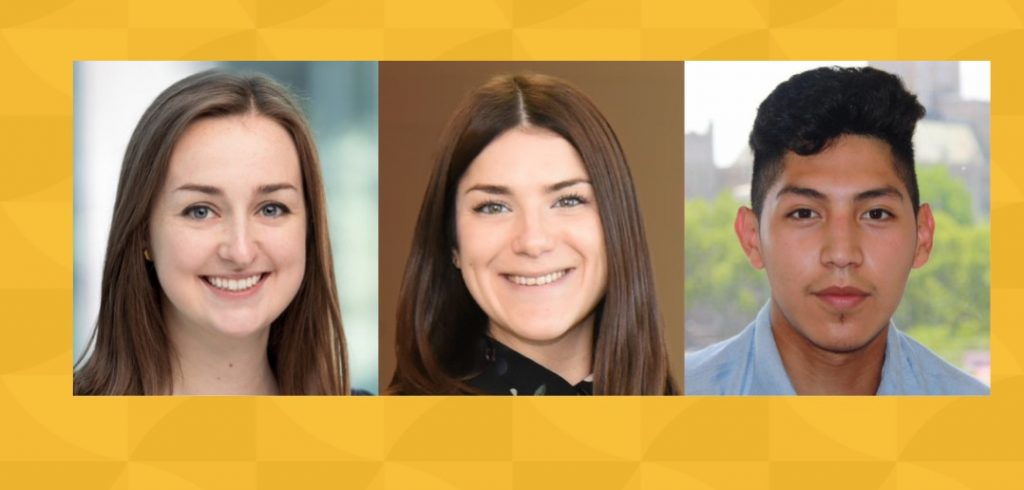On November 9, Federal Litigation Clinic students Elizabeth Marley ’21, Kelly O’Connor ’21, and Bayron Flores Tapia ’21 argued a compassionate release motion in the United States District Court for the Southern District of New York. Due to the pandemic and the curtailing of in-person hearings, the students were required to argue the motion by phone. Many courts have asked defendants and their attorneys to appear by phone or by audiovisual media such as teams or zoom for their hearings.
Under the supervision of Professors Michael W. Martin and Jennifer Louis-Jeune, the students represented a client convicted on a drug-dealing charge who had little more than three years remaining on his original 15-year sentence. Despite the government’s concession that the client had compelling and extraordinary circumstances as someone with elevated risk for COVID-19, prosecutors argued that he should remain at the facility and incarcerated. According to the students, they gave greater weight to other factors, including the original sentencing and history of the defendant, while underestimating the fatal threat to their client’s life posed by lack of testing, congestion, and exposure to untested, potentially COVID-19 infected–but asymptomatic–prison staff.
Participating in a hearing by phone has its challenges. Marley, who argued the motion, said the students were prepared to refute any argument the government made. However, the prosecution had organized their arguments differently than how they had done in their court papers. Without visual cues of an in-person hearing. Flores Tapia noted, “it was sometimes difficult to anticipate what the judge or the prosecution was about to say.” Although the remote process was well-organized, the students found it somewhat disconcerting not to be able to see the judge’s demeanor during oral argument. The client was also present by teleconference but did not speak.
O’Connor said it was an honor to represent “a real person” and this particular client, with whom the students had developed a trusting relationship. Flores Tapia added that this experience was a reminder “that in the clinic, the stakes are higher because you work with real clients.”
“It felt strange doing an oral argument in court from the comfort of my living room,” Elizabeth said, “But the experience was just as exciting.” The Federal Litigation Clinic is waiting to hear if the motion was granted.

